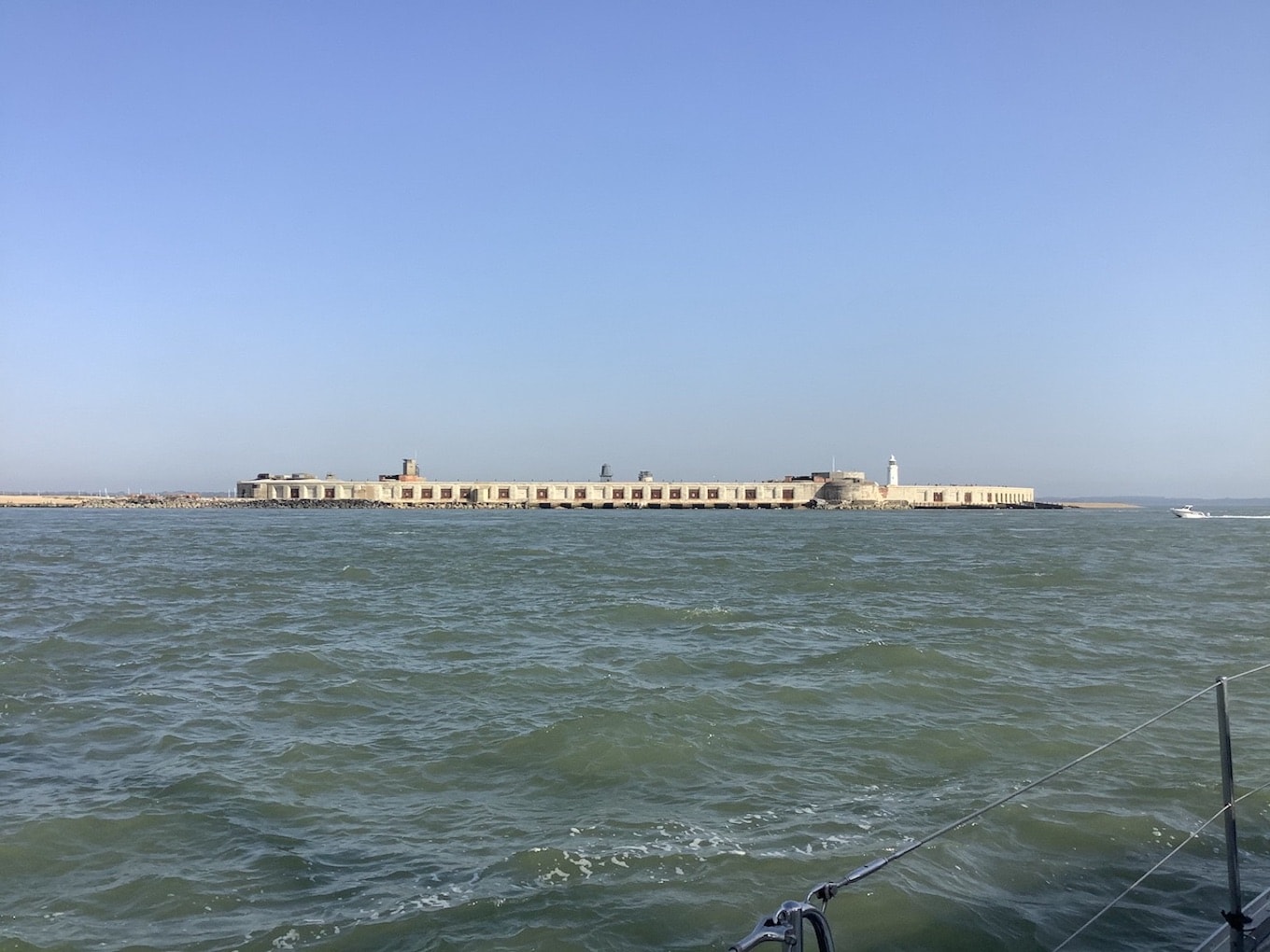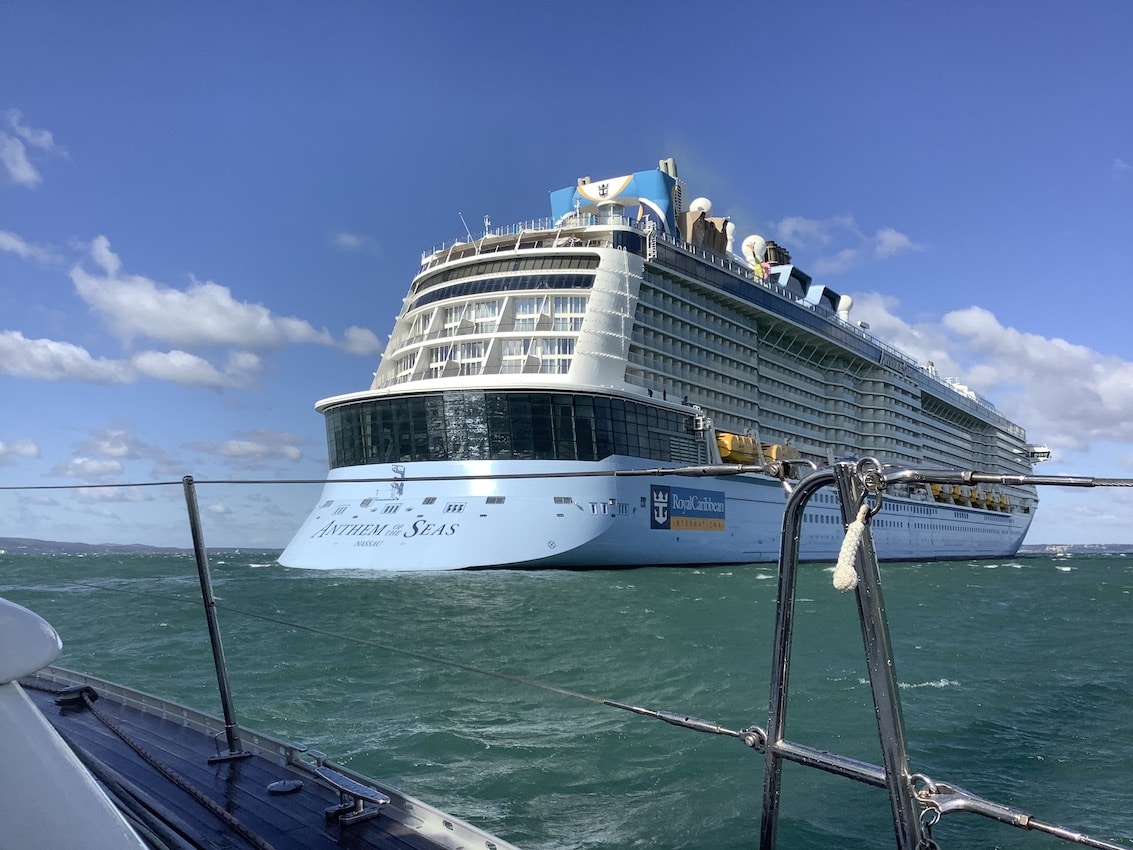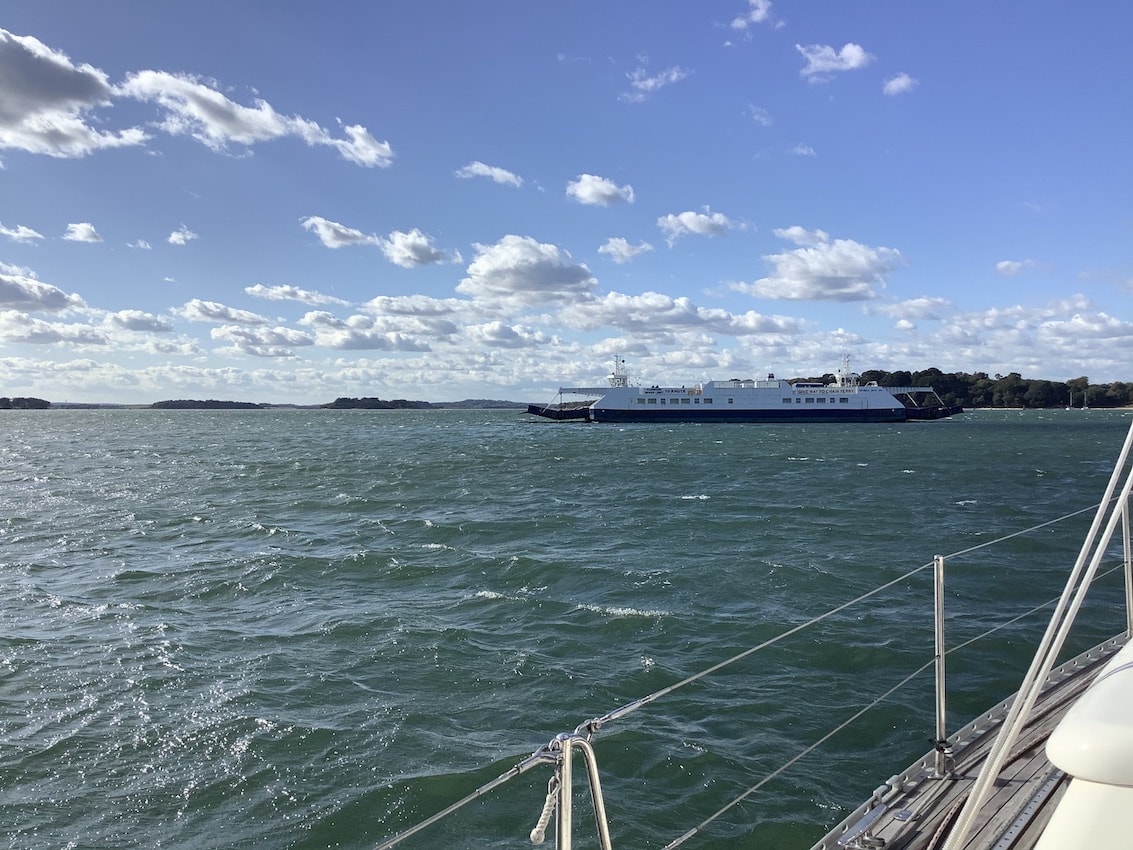The time had come to leave the Solent and to continue our journey west.
The next leg was to Poole – 40 miles in a straight line. Wind and tide permitting, we were hoping to sail as much of this leg as possible. This would add a few extra miles, so we planned for a journey of between 8 and 10 hours.
When planning our passage, we checked the tidal flow for the journey. The key place to get the flow right was between Hurst Point and the Needles. Tide here can run at up to 4 knots, so it is very important to get the tide with you – unless you want to risk going backwards. From Southampton, Hurst Point is about 15 miles. This meant we needed to be off at 7am to get to Hurst Point before the flow turned. An early start for us, but it was beautiful sailing as the sun was rising.
Hurst Point is on the mainland opposite the Needles. There is a lighthouse to guide vessels through the western approaches to the Solent and also a castle. The castle is actually an artillery fort which was established by Henry VII between 1541 and 1544 and formed part of the costal protection against invasion from France. My history improves daily!

Once through the channel, we set a course for Poole.
The wind was north westerly and predicted to be Force 6 (22 – 27 knots). This time the forecast was spot on and we had great wind for sailing.
When choosing a sail plan (ie which sails to use), it is important not to over power the boat. For the boat to sail most efficiently, it needs to be balanced; it is not always a case of more sail out meaning more speed. The wind was moderately strong, so we chose to sail with a reef in main and also in the Genoa – this means that we kept some of the sails furled up to reduce the sail area.
The plan worked well initially, but the wind gusts increased in frequency and also in strength (up to 35 knots). This meant that that even the reefed Genoa was too much and the boat heeled significantly, slowing us down.
We reassessed and changed our sail plan, furling away the Genoa and bringing out the staysail. This is a smaller sail and is made for stronger winds. It made the boat more stable and much more comfortable.
When sailing, especially in a busy place like the Channel, it is always important to watch out for other vessels.
On route to Poole, there were many cruise liners to avoid. These were not leaving port for exotic locations, but at anchor, laying up while not in use. They were anchored just outside Poole and it seemed that they were always exactly where we wanted to go. We got to practise lots of manoeuvring to get around them.
Even when entering Poole harbour itself, there are still major obstacles to watch out for. The main one is the chain ferry which travels across the entrance. This definitely has right of way and doesn’t stop for anything. Over the years, there have been several accidents. Recently a small boat was trapped under the front of the ferry and had to be rescued by the RNLI.


While sailing, we always have our VHF radio on, monitoring the main safety channel (Channel 16). This means that we hear any messages put out by other boats and also the coastguard. These are usually general information messages, but we have heard mayday and pan pan messages. Boats hearing these messages have a duty to listen and help if they can.
As we were arriving towards Poole, we heard a PAN PAN. A boat had lost steerage and was unable to steer back to Poole. The Solent Coastguard had picked up this radio call and asked for boats in the area to respond. We were about 5 miles away, so radioed the coastguard. We were informed that there was actually another boat closer, but we were asked to ‘stand by’ in case other support was needed. We slowly headed in the general direction of the stricken boat and continued to listen. The other boat eventually managed to get close enough to pass a tow rope across and startled the long tow back to harbour. When approaching Poole, the RNLI came out to take over the tow into the harbour.
Thankfully our services had not been needed and all turned out well.
Excellent report from our own Kate Adie aka Carol Wagstaff, loved the video, it looks like sailing always have sunny days, I doubt thats the case, enjoy you two.
Hi,
Thank you!
It is most definitely not always sunny, but good weather makes for better pictures!! Also if the weather is too rough, I am too busy holding on to be able to take pictures….
x
Wonderful Caron.
Poole harbour was my first ever open water dive X fond memories from another life!!
Sail safe
xx
Hi,
Great to hear from you. I hope you are all well.
I am not sure that I would want to dive in Poole Harbour – a little cold and not much to see!!
Remember to come and see us next time you are allowed to visit your mum.
X
Definitely will. :0) We’ve only been able to see my mum once since last October. Just awful times eh.
So glad you are able to get out on the boat. In the long run Caron its the best prep for your big trip actually. At least you’ll get to iron out any bits that you may not even have considered eh. All good prep & practice xx
Agreed! Much as it is frustrating to be in Ipswich, rather than on our way across the Atlantic, the extra time has been extremely useful. xx
can you add a “bucket needed” warning before watching that video please??
Will remember that for next time!! I guess you won’t be coming for a sail when we get over to Australia…. x